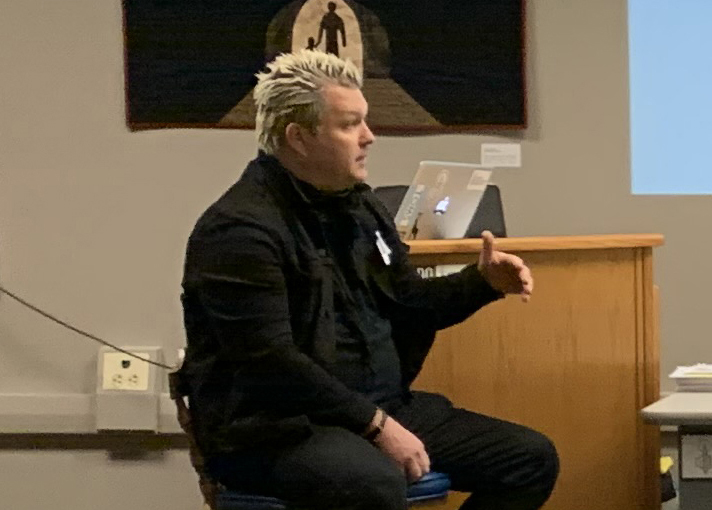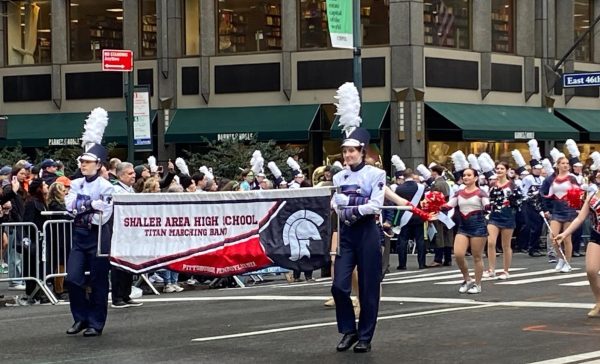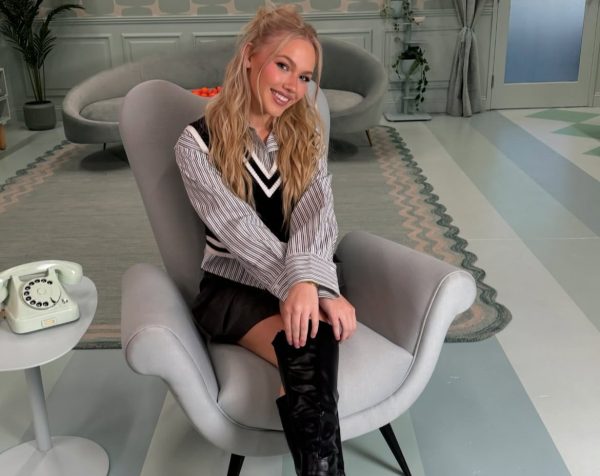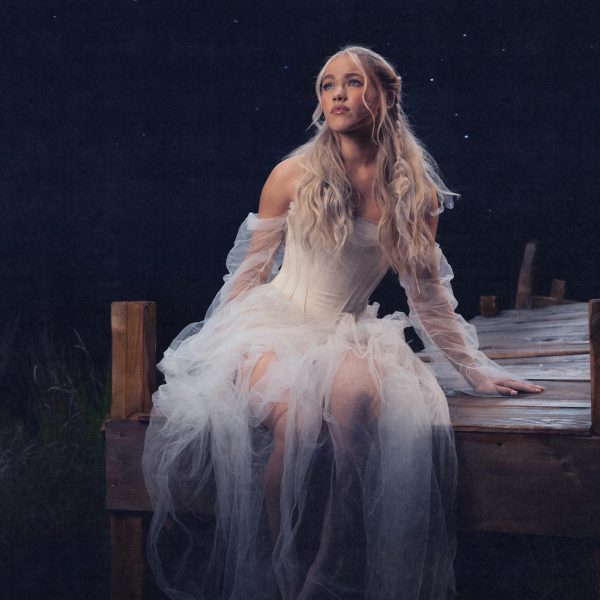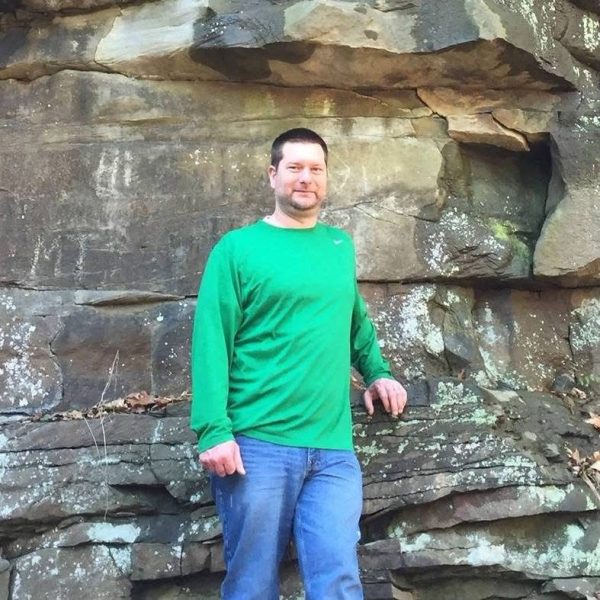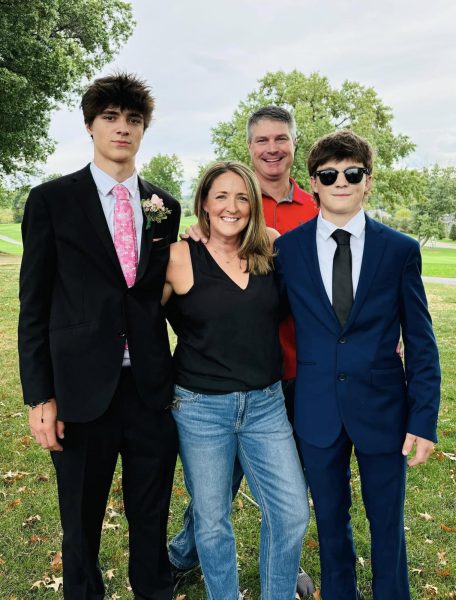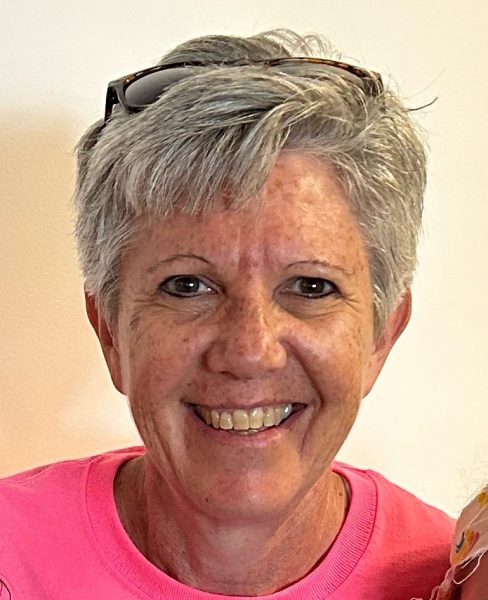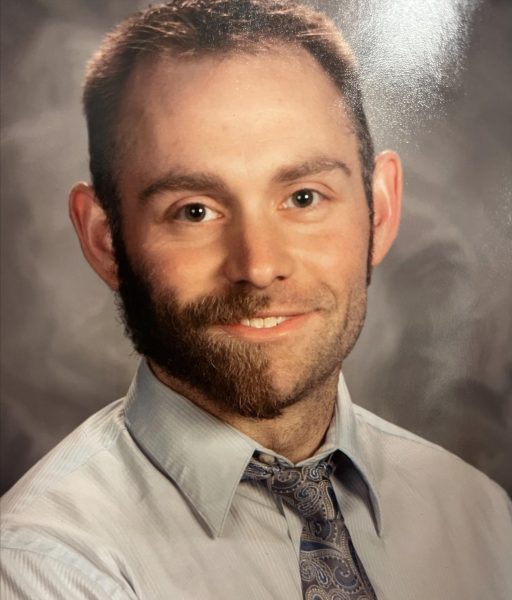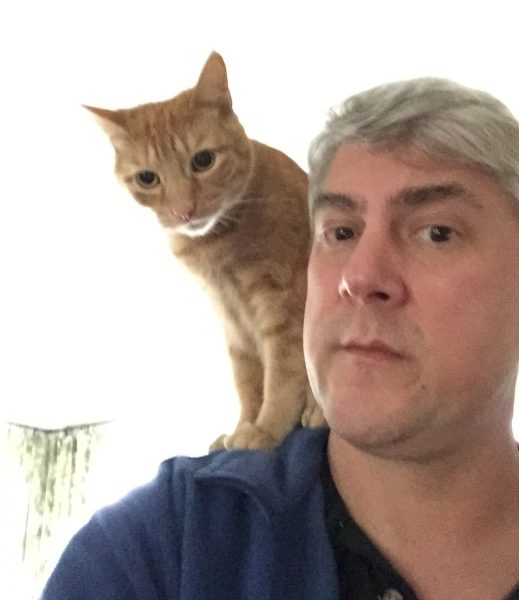Anti-Flag drummer Pat Thetic talks politics, music, activism
Anti-Flag drummer Pat Thetic answers questions in Shaler Area classroom
Pat Thetic is the drummer for Pittsburgh punk rock band Anti-Flag. He is a graduate of Shaler Area High School, and still practices in Shaler today. Anti-Flag is a politically motivated band, often incorporating social issues and human rights into its music. The band has toured throughout North America, Europe, and Asia. They currently have over 700,000 monthly listeners on Spotify, and will release a new album, “20/20 Vision”, in January.
Q: How did you get your start in music?
A: I went to school here. Justin, who I started the band with, did not go to Shaler. Justin and I played club soccer together. We were both (expletive)-ups and weirdos who no one else wanted to hang out with. We also didn’t do drugs or drink alcohol, which made us less interesting to other people. So, we found that we came together and played music on a Friday night instead of going to a party. The band kind of started by being outcasts in the places we lived. When you become an outcast in one society, you create another society.
Q: Was the band political from the start, or did it evolve into politics?
A: We have always had social justice and revolutionary views as people, and that translated into the music we created. When we were young we were angry at everything, and we were not as educated, aware, or exposed to a lot of different issues. We didn’t understand why we were angry, but we were. It seems like people in Shaler strive for mediocrity. There is no excellence, we’re just trying to achieve baseline, which is a (expletive) place to be. That made me angry. I wanted something that was better, I wanted something that was different, I wanted something that wasn’t as vanilla and white as the Shaler experience was. I wanted something that was more multicultural, I wanted new ideas. I realized that the ideas that were coming at me in the place I lived were boring and tired, and I wanted something new. We were looking for something; Politics and Activism were a way of finding it.
Q: When you say change and revolution, what does that mean to you?
A: Things don’t have to be the way they are, right here. Once you realize that, you see that there are other solutions to problems. When you travel around the world, you realize that the way things are in the United States is not the way things are in other places. You realize that most kids in other places don’t have to have metal detectors on their way into school. So, why is that, and how do we make a change? These things are important to me. For me, these all come down to economic issues. The economic disparity between the people with the most and the people with the least causes a lot of these problems. That is the type of change we wish to see.
Q: Can you tell me about the rise of the band and its early popularity?
A: It is a very different experience from the outside looking in to a band becoming popular and being inside of a band becoming popular. The band has been doing the same thing for the past twenty-five years, more people have come and have been engaged in the band, over time, but that doesn’t really change what we do.
We started playing shows, we started shows outside of the Pittsburgh area, we started playing shows outside of the US, all of those things became bigger and bigger and bigger, but there is nothing on the inside that has really changed that much. To become successful, you treat people well, you love what you do, and you are passionate about what you are trying to achieve. If you do those things, you’ll figure out how to make a living. It won’t be a great living, but it will be enough to survive. All we want to do is to have the freedom to make the choices that we want to make, and have the economic resources to make those choices.
Q: How has the current administration and the current political climate changed your views, changed the band, and changed the band’s views?
A: The aftermath of September 11th showed those of us who were activists and revolutionaries how thin the veneer of democracy and human rights are. After the attacks, powerful people made power grabs and took rights away from people. That’s a scary position to be in. We’re taught in our civics classes that we have a Bill of Rights, we have a Constitution, we have UN human rights laws, and these things are universal and apply to everyone. The reality is that they don’t. They only apply when we all collectively say these are important things and we’re going to force them to apply.
With the Trump administration, what we see is that authoritarianism is a real possibility in the US and that people will roll over and allow their rights to be taken away. That is very scary to me, but those are the esoteric visions of it. The fact that he puts kids in cages and is clearly a white supremacist, or at least has dog whistles for white supremacists is screwed up. We actually have a new record, and it has Trump on the cover. It deals with a lot of these issues.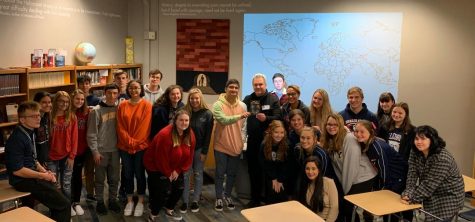
Q: You’ve put two new singles out recently, “Christian Nationalist” and “Hate Conquers All”; what message are you trying to send in these songs?
A: “Hate Conquers All” is a statement about the idea of “Love Trump’s Hate” and the idea that Trump is simply a hateful person. The reality is that he is much bigger than just a hateful person. He is a person who is trying to take our rights, to take our money, to take our freedom away from us for his own gain. We live in a world that is pretty safe, most of us aren’t worried about ICE coming and taking you or your family in the middle of the night. These things are realities in Trump’s world and that is something we’re talking about in this new record. I, as a white male, have many privileges that other people do not, and we have to be aware that we must protect all people, because if we don’t, all of our privileges go away.
“Christian Nationalist” is about the idea in the US that terrorism is created by people of color. The reality is that most terrorism in the US is created by white Christians. It is about how Christianity can perpetuate that this is ‘God’s will’ and other crazy (expletive) that leads to these attacks. The synagogue shooting in Squirrel Hill was perpetrated by a white Christian nationalist.
Q: How did the Tree of Life shooting affect the band?
A: I was actually having my first child at the very moment that the shooting was happening. It was very much a part of my existence, and the existence of my family. I lived in Squirrel Hill for part of my life after I left Shaler. It is the reality that any jackass with a gun can kill a lot of people. There’s a lot of coverage for the top, and Trump, that these beliefs of hate are okay. It’s a horrible thing, and we need to stand up against it.
Q: Anti-Flag is commonly associated with the Anarchist punk movement. Are you an Anarchist?
A: I am more of a Socialist, in the pure sense of the word. I do think we need some sort of government and some sort of structure, but I do think we need a redistribution of the wealth so that everyone can live free and happy without just a few people with all of the money.
Q: You’ve been all over the world. What places do you like best?
A: I like Germany and Switzerland a lot. I’ve been to Hong Kong, which is pretty awesome. They’re struggling to defend their rights and freedoms right now. Mexico City is also great. We know that Mexicans are not horrible rapists like Trump says they are, but playing in Mexico really refreshes my faith in humanity, seeing all those amazing people. The same goes for different places in Russia. I was taught growing up that Russia was the enemy, but when you go there and meet them, you realize that they are very nice people.
Q: How has witnessing political and social movements all over the world affected the band’s message?
A: It gives us hope. We go all over the world and meet activists and social justice advocates, and they’re all fighting for the betterment of themselves and the people around them. You realize that the idea that everyone is apathetic and no one cares is not true. That is inspiring to us. We also see social justice movements in every city we go to fighting for social issues. I think every kid should take a year, instead of going to college, and travel. Once you see more of the world, you realize that the (expletive) at home doesn’t matter, and the issues you might have here aren’t real.
Q: You talked about global movements. What movements are there in Pittsburgh to get involved in?
A: There is lots of movements in Pittsburgh. I usually push people towards bigger organizations like GreenPeace and Amnesty International. They are great because they’re already established. There are people fighting against the gentrification of East Liberty, and plenty of movements like that. It all depends on what issues you think are the most important.
Q: Aside from joining an organization, what can we do, as young individuals, to help the world?
A: You should always be aware of where your information is coming from. Whatever information you’re getting always has a particular point of view.
Being able to realize what people have to gain and lose by having certain opinions, and comparing those yourself is important. Being aware and active is critical.


